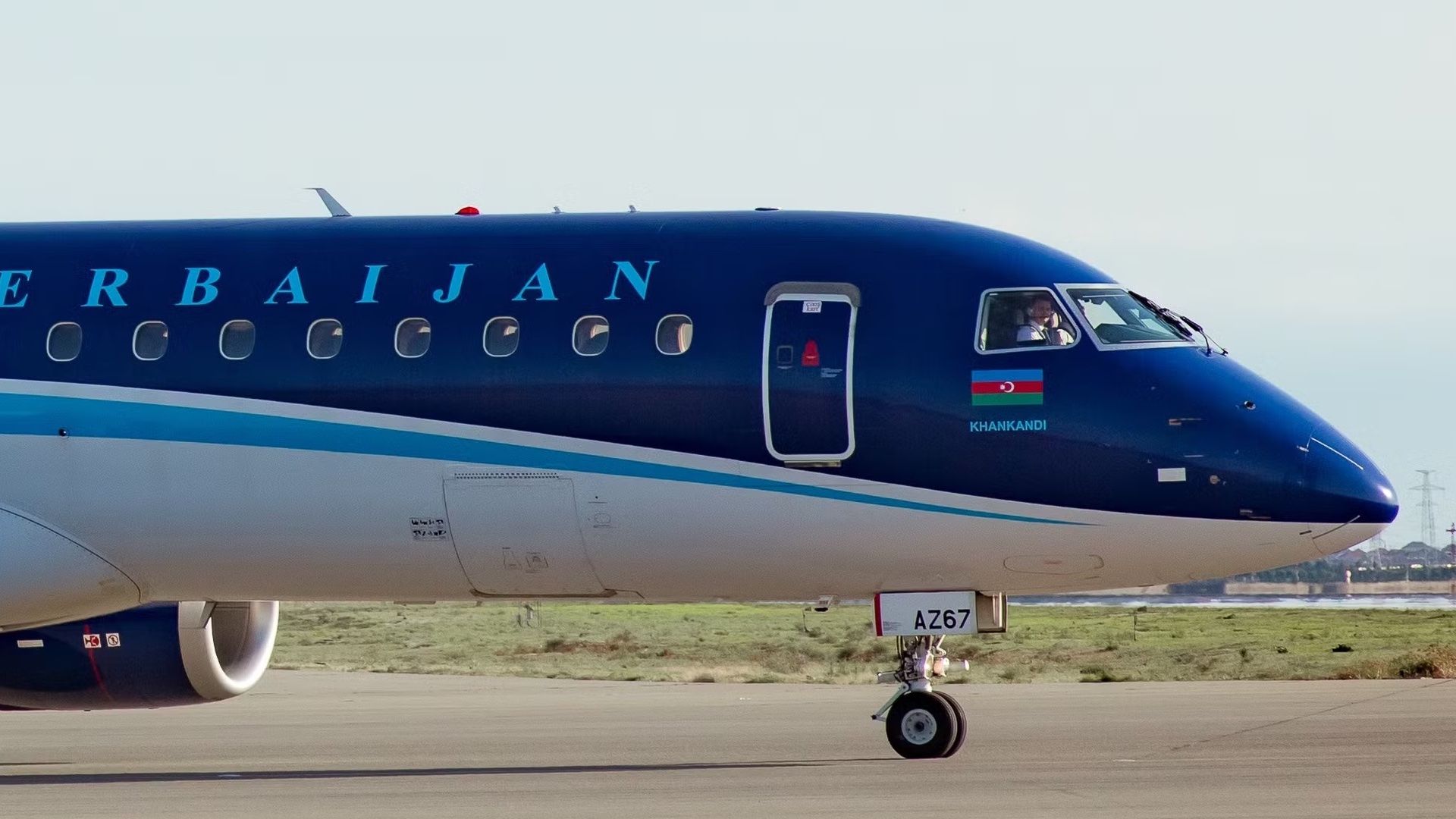World
Russia Acknowledges Responsibility for Downed Azerbaijan Airlines Flight

On December 25, 2024, an Azerbaijan Airlines Embraer 190 was shot down by Russian air defenses, resulting in the deaths of 38 individuals. Russian President Vladimir Putin confirmed this tragic incident during a meeting with Azerbaijani President Ilham Aliyev in Dushanbe, stating that missiles aimed at a Ukrainian drone detonated near the aircraft as it approached Grozny. Putin pledged accountability and financial compensation to the victims’ families. The aircraft ultimately crashed near Aktau, Kazakhstan, after diverting across the Caspian Sea.
This admission marks a significant shift from Russia’s previous stance, which had been characterized by ambiguity and Azerbaijani claims of a cover-up. International media have reported this as Putin’s first clear acknowledgment of responsibility regarding the incident.
Details of the Incident
Azerbaijan Airlines Flight J2-8243, which was en route from Baku to Grozny, encountered a catastrophic event when Russian air-defense missiles targeting a Ukrainian unmanned aerial vehicle exploded in close proximity to the aircraft. This explosion caused extensive damage, peppering the airframe with metal fragments and affecting critical systems, including stabilizers and hydraulics. The crew attempted to divert the flight but ultimately lost control, leading to a crash near Aktau. Out of the 67 people on board, 29 survived while 38 tragically lost their lives.
Investigations into the crash revealed fragments consistent with a Pantsir-S1 missile, deepening suspicions regarding the nature of the incident. Initial reports from Baku quickly attributed the incident to Russian air-defense fire, coinciding with increased drone activity in the area. A preliminary report from Kazakh authorities confirmed that the fuselage had been struck by external fragments, further supporting the assertion of a missile event.
Reactions and Implications
In the wake of the crash, Azerbaijani officials were quick to assert that the aircraft had been hit by Russian fire. Moscow initially expressed regret but refrained from accepting full responsibility, instead suggesting alternative explanations. This hesitation fueled accusations of a cover-up from Azerbaijan and further strained relations between the two nations.
After nearly ten months of speculation, Putin’s admission on October 9, 2025, represents a pivotal moment. Russian officials confirmed that two missiles were responsible for the incident, aligning with earlier assessments that had suggested Russia’s involvement all along. While Western aerospace regulators had suspected Russian culpability from the outset, the acknowledgment may change the landscape for both diplomatic relations and future safety protocols in the region.
This admission could provide a degree of closure to the families affected by the tragedy, as they have long awaited recognition of the circumstances surrounding the crash. The potential for financial compensation, should Putin follow through on his promise, may also serve to mend the strained ties between Russia and Azerbaijan.
The incident underscores the inherent risks associated with geopolitical tensions and their impact on commercial aviation. Passengers will need to remain vigilant about these risks when planning air travel, as conflicts can lead to significant safety concerns. The acknowledgment of responsibility by Russia may not fully erase the tragedy, but it highlights the urgent need for accountability in aviation safety amid ongoing regional conflicts.
-

 Top Stories3 months ago
Top Stories3 months agoTributes Surge for 9-Year-Old Leon Briody After Cancer Battle
-

 Entertainment4 months ago
Entertainment4 months agoAimee Osbourne Joins Family for Emotional Tribute to Ozzy
-

 Politics4 months ago
Politics4 months agoDanny Healy-Rae Considers Complaint After Altercation with Garda
-

 Top Stories4 months ago
Top Stories4 months agoIreland Enjoys Summer Heat as Hurricane Erin Approaches Atlantic
-

 World5 months ago
World5 months agoHawaii Commemorates 80 Years Since Hiroshima Bombing with Ceremony
-

 Top Stories3 months ago
Top Stories3 months agoNewcastle West Woman Patricia Foley Found Safe After Urgent Search
-

 Top Stories5 months ago
Top Stories5 months agoFianna Fáil TDs Urgently Consider Maire Geoghegan-Quinn for Presidency
-

 World5 months ago
World5 months agoCouple Convicted of Murdering Two-Year-Old Grandson in Wales
-

 World5 months ago
World5 months agoGaza Aid Distribution Tragedy: 20 Killed Amid Ongoing Violence
-

 World5 months ago
World5 months agoAristocrat Constance Marten and Partner Convicted of Infant Murder
-

 Top Stories4 months ago
Top Stories4 months agoClimbing Errigal: A Must-Do Summer Adventure in Donegal
-

 Top Stories4 months ago
Top Stories4 months agoHike Donegal’s Errigal Mountain NOW for Unforgettable Summer Views









